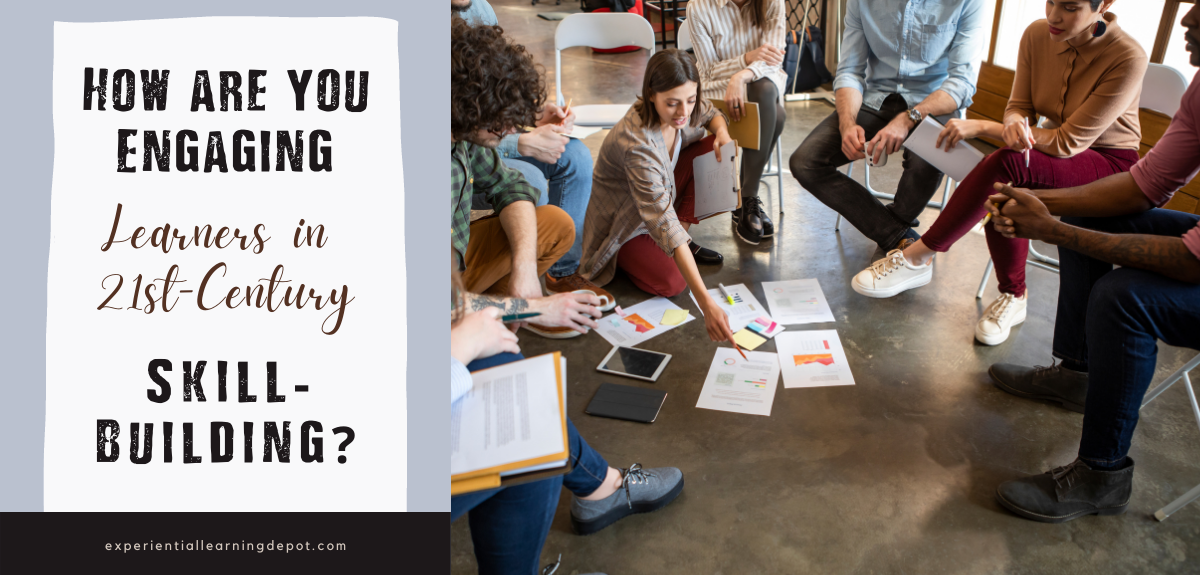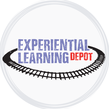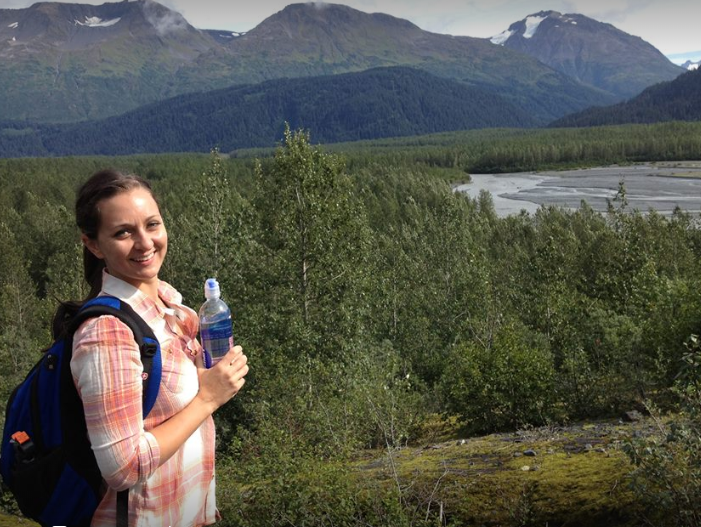|
Experiential learning resources for the innovative educator
How to Teach the 21st-Century Skills and Content Knowledge
Content knowledge and 21st-century skills? Can educators teach both to 21st-century learners? The answer is yes, they can do it all, and at this point, they must.
Not long ago my husband and I got into a conversation about the importance of 21st-century skills. What is more valuable, skills or content knowledge? I argued (and have argued here before), that you can't have one without the other, and it is one of our greatest responsibilities as educators to provide opportunities for development in both.
To be a wildlife ecologist, my career before teaching, I needed to understand concepts such as carrying capacity, predator/prey relationships, symbiotic relationships, migration behaviors, etc. - the content. An ecologist might also need to know how to utilize mapping software, write a technical report, read and produce charts and graphs, and present their findings to their scientific peers - hard skills.
Once learners have memorized the buzzwords, have a basic understanding of the content, and have developed some relevant hard skills to get them started, are they in the clear? Will they succeed in their careers, live a happy life, be competitive, be creative, healthy, responsible, productive citizens? To make it as a wildlife ecologist, I also needed to be able to problem-solve. I needed to be able to communicate and collaborate with stakeholders, even those that I didn't always agree with. I needed to know not just how to solve a problem, but how to identify one. I had to accept failure and grow from it. I needed to be able to ask important and relevant questions. It is a rare occurrence to be handed information, discrete facts, outside of a classroom environment. I have had to troubleshoot, find answers, and reach conclusions on my own as a wildlife ecologist, educator, blogger, curriculum writer, mother, daughter, friend, citizen and everything else I am or have become.
These are important skills that are often forgotten about or glossed over in modern day classrooms. Some educators lack the confidence to teach content AND skills, don't find value in including skills in their curriculum, or don't believe there is enough time to do both.
I find this to be particularly accurate in secondary classrooms. The pressure on teachers is high. Lack of time is a misconception, though. It's easier to work around time constraints when you choose learning activities that promote both skill and content development. Project-based learning is one example. Students learn content while also engaging with the community, networking, problem-solving, presenting, and locating credible resources, all essential skills that wouldn't be gained from lecture, worksheets, or textbook readings alone. I see many educators trying project-based learning as well as STEM, STEAM, experiential learning, design activities, inquiry, nature-based learning, and play-based learning, among many others. The students of these educators will thank them later. These are all strategies that help learners develop content knowledge AND build the skills they need to be happy, confident, passionate lifelong learners. Check out my ready-made resources and teacher tools for experiential learning activities.
Whether you are a primary teacher, middle or high school teacher, an alternative educator, a home educator, a traditional or progressive educator, you need to ask yourself, "What am I doing to engage my students in 21st-century skill-building?" Do some serious, honest reflection. If you are delivering content, and content alone, reassess and make some changes. Learners deserve better. It's never too late to start!
As I said earlier, I believe another reason for glossing over skill development in classrooms is lack of confidence on the part of the educator. I for one have always been intimidated by STEM. That insecurity held me back for a long time. Eventually I just decided to go for it. I slowly started adding a few STEM activities here and there until both my students and I had more confidence. STEM activities help students practice team-work, critical thinking, creativity, tech literacy and more. So, over the course of the next month I will post about specific skills along with tips, tricks, learning activities and other resources to engage students in those skills. Stay-tuned for that. How do you incorporate 21st-century skill building into your curriculum or routine? If you are looking for a resource that specifically focuses on showcasing 21st-century competencies, check out my 21st-Century Skill-Building Portfolio. I also encourage you to check out my introductory posts to my learning 21st century skills blog series including the benefits of teaching 21st century skills and how to add 21st century skill-building activities to your curriculum.
Follow Experiential Learning Depot on Pinterest, Facebook, Youtube, and Instagram for more on experiential education, and check out my TpT store for experiential learning resources.
Did you know there is an experiential learning Facebook group? Check that out - Experiential Learning Community for K12 Teachers - and join in the discussion about experiential learning. Observe. Question. Explore. Share.
1 Comment
|
Blog IntentTo provide innovative educational resources for educators, parents, and students, that go beyond lecture and worksheets. AuthorSara Segar, experiential life-science educator and advisor, curriculum writer, and mother of two. Categories
All
|






 RSS Feed
RSS Feed